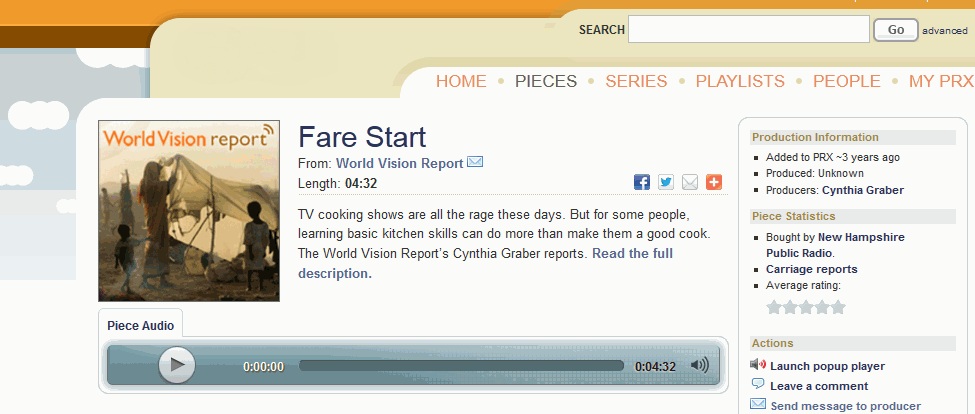Audio Reports
Audio reports provide information about an issue, event, or individual. When they are used to help their audience understand a problem and its solution, they generally offer a clear definition of the problem, provide background information that will frame the problem in a particular way, present the solution, and explain why it was or wasn’t successful.
Reports can appear in a variety of forms, from written documents that resemble essays or articles to videos shown on television or the Web to audio presented through radio or as podcasts. Reports are usually written or presented in a straightforward, seemingly objective voice. Sources of information used in reports are usually identified in a manner consistent with the form in which it appears. A written report is likely to include in-text citation and a formal works cited lists, while a video or audio report is more likely to identify sources in a more conversational manner.
 | Cynthia Graber |
Fare Start |
Cynthia Graber is a radio and print journalist. Her reporting has aired in Scientific American and Living on Earth and been published in the Boston Globe Sunday Magazine and Smithsonian.com. A recipient of the MIT Knight Fellowship for Science Journalism, Graber focuses on science, culture, food, the environment, and international issues. “Fare Start” aired on The World Vision Report, a radio show that investigates global poverty.
| Starting a Conversation: Respond to “Fare Start” | |
 | In the text boxes below, reflect on Graber’s report by responding to the following questions: |
Question
Question
Question
Question
